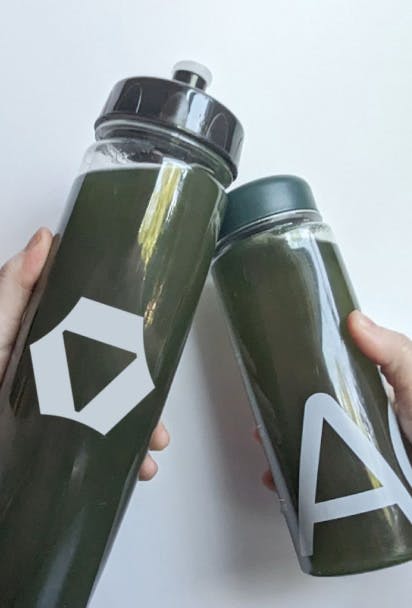The Growing Complexity of Supplement Fulfillment
The U.S. dietary supplements market is projected to surpass $70 billion by 2031,1 fueled by consumer demand for wellness products, functional beverages, and personalized nutrition. Direct-to-consumer (DTC) supplement brands, from capsules and powders to ready-to-drink beverages, are capturing this momentum with subscription models, influencer-driven campaigns, and rapid product launches.
But scaling fulfillment for supplement brands is anything but simple. Unlike standard e-commerce categories, supplements require rigorous compliance, precise storage, and highly controlled logistics. Temperature-sensitive products, expiration dates, and strict labeling regulations add layers of complexity to inventory management, order fulfillment, and returns.
Why Supplement Fulfillment Requires a Different Playbook
Compliance-Driven Operations
Supplements are regulated by the FDA under the Dietary Supplement Health and Education Act (DSHEA).2 While not as stringent as pharmaceutical standards, brands are expected to follow Good Manufacturing Practices (GMP) and ensure traceability in case of recalls. This means fulfillment partners must be equipped for:
Lot and batch tracking to trace products back to production runs.
Expiration date management to rotate stock efficiently.
Accurate labeling and packaging to maintain compliance and avoid costly penalties.
Storage and Handling Needs
Supplements often require more than standard warehouse conditions. Powders, softgels, and probiotics may degrade under heat or humidity, while ready-to-drink functional beverages demand cold chain logistics to preserve quality.
Customer Expectations
The DTC model thrives on recurring orders and subscriptions. Customers expect fast, reliable, and consistent delivery, whether they’re restocking protein powder or receiving their monthly vitamin box. A single delayed shipment risks churn in a competitive market.
Warehouse Storage Solutions for Supplements
Storing supplements isn’t as straightforward as shelving apparel or books. Each product type comes with its own environmental and regulatory requirements. Here are the key storage considerations to keep in mind:
1. Temperature Control
Standard dry storage works for many capsules and tablets, but some supplements, such as probiotics, gummies, and beverages, require climate-controlled or refrigerated environments. When evaluating warehouse solutions, it is essential to confirm whether the facility offers reliable temperature management across multiple categories, including dry, refrigerated, and frozen products.
2. Humidity Management
Excess moisture can cause powders to clump or capsules to degrade. Warehouses should have proper ventilation, dehumidifiers, and sealed packaging zones in place. Decision-makers should ensure that facilities not only provide these systems but also monitor them consistently to maintain product integrity.
3. Inventory Segmentation
Separating SKUs by product type, such as powders, liquids, and softgels, and tracking inventory by lot or batch level prevents contamination, obsolescence, and simplifies compliance audits. The warehouse solution must demonstrate the capability to handle diverse categories of supplements simultaneously, ensuring that each product type is properly segregated and maintained according to its unique requirements.
4. FIFO or FEFO Rotation
Using “first in, first out” or “first expiring, first out” methods ensures customers receive the freshest possible inventory while reducing waste. Warehouses should confirm that their staff are trained in Good Manufacturing Practice (GMP)3 handling procedures so that rotation systems are applied consistently and accurately in day-to-day operations.
5. Compliance-Ready Tracking
Lot codes and expiration dates must be tracked within a Warehouse Management System (WMS) to allow precise recalls if necessary. A compliant warehouse setup will provide full visibility at the lot and batch level, giving brands confidence that inventory is traceable at every stage and consistently meets regulatory requirements.
Cold Chain Logistics for Beverages
Functional and wellness beverages, like protein shakes, kombucha, and nootropic drinks, have become a fast-growing extension of supplement brands. But unlike powders or capsules, beverages often require cold chain logistics to maintain shelf stability and taste.
The Cold Chain in Action
Cold chain logistics refers to the end-to-end temperature-controlled supply chain, from warehouse storage to last-mile delivery. For supplement beverages, this may include:
Refrigerated warehousing for short-shelf-life products.
Insulated packaging and gel packs for parcel shipping.
Carrier selection based on cold chain capabilities.
DTC Challenges with Cold Chain
Delivery speed: Cold chain shipments can’t spend days in transit, making multi-node fulfillment a necessity.
Cost trade-offs: Temperature-controlled packaging and carrier services add cost per order.
Returns complexity: A returned beverage often can’t be resold, leading to higher waste compared to capsules or powders.
Best Practices for Cold Chain Supplements and Beverages
Regional Warehousing: Store inventory closer to customers to minimize shipping distances.
Dynamic Packaging: Adjust insulation and ice pack quantities based on season and region.
Real-Time Tracking: Monitor temperature and transit milestones to prevent spoilage.
Delivery Promises: Clearly communicate cutoff times for same-day shipping to protect product integrity.
Cold chain logistics for beverages isn’t just about compliance; it’s about ensuring the customer receives a safe, enjoyable product that reinforces brand trust.
Subscription Models and Inventory Planning
Supplements are a natural fit for subscriptions, but recurring orders place additional pressure on fulfillment operations. If your customers expect monthly replenishment, stockouts or missed deliveries can quickly erode retention. Here are some key considerations for brands with a subscription-based fulfillment model:
Demand Forecasting: Align production and storage with recurring order patterns.
Auto-Routing Orders: Use OMS technology to ship from the closest node automatically.
Inventory Buffers: Maintain safety stock to cover unexpected demand spikes.
Personalized Packaging: Many supplement brands include trial packs, samples, or customized kits, requiring flexible kitting processes.
Returns Management for Supplements
While apparel brands can often restock returned products, supplements face stricter limits. A returned opened bottle of capsules, or a partially consumed beverage, cannot be resold. This makes reverse logistics both costlier and more sensitive. Here are some best practices on how supplement brands can efficiently deal with returns:
1. Categorize Returns
All returns should first be categorized to determine the appropriate next step. Unopened and sealed products may be eligible for resale after proper inspection, while opened or temperature-sensitive items must typically be diverted to disposal or, where legally permissible, donated. Clear categorization helps minimize risk and ensures compliance.
2. Automate the Returns Process
Automation is key to reducing the burden of returns on both customers and warehouse teams. A self-service portal with clear instructions makes it easy for customers to initiate returns, while integration with warehouse systems ensures smooth processing. This allows returned products to be restocked, disposed of, or redirected efficiently without unnecessary delays or any added complexity.
3. Prevent Returns Through Transparency & Clear Guidelines
The most effective way to reduce costly returns is by preventing them in the first place. Providing accurate product descriptions, clear usage instructions, and even size or serving guides helps reduce buyer confusion and sets proper expectations. While returns don’t directly generate revenue, handling them with efficiency and empathy not only minimizes losses but also builds long-term customer trust.
The Supplement Fulfillment Decision Matrix
For DTC supplement leaders evaluating fulfillment strategies, here’s a practical decision framework:
1. Product Requirements
Do your products need cold chain logistics, climate-controlled storage, or both?
What are the compliance requirements for labeling, batch tracking, and recalls?
2. Customer Expectations
Are subscriptions a key driver?
Do customers expect same-day or two-day shipping?
3. Operational Complexity
How many SKUs and product formats do you manage (capsules, powders, beverages)?
Do you need kitting or custom packaging for bundles?
4. Returns and Reverse Logistics
How will you handle sealed vs. unsealed returns?
Do you need dedicated inspection or donation workflows?
5. Scalability
Can your current fulfillment setup handle viral demand spikes?
Do you have multi-node coverage to expand regionally or nationally?
By mapping these questions against your growth strategy, you can identify whether your current fulfillment model (in-house or outsourced) is sustainable or if it’s time to upgrade to a specialized partner.
The Future of Supplement Fulfillment
As supplements and functional beverages continue to expand in the DTC market, fulfillment strategies must evolve. Some emerging trends include:
Micro-fulfillment hubs in urban areas to enable same-day delivery.
AI-driven demand forecasting to prevent stockouts and overstocks.
Eco-friendly cold chain packaging to reduce costs and improve sustainability.
Integrated compliance platforms that unify lot tracking, FDA reporting, and fulfillment data.
Brands that invest early in flexible, compliance-ready fulfillment can scale faster while protecting customer experience and regulatory integrity.
Final Thoughts
Fulfillment for supplement brands is a high-stakes balancing act between speed, compliance, and customer experience. From warehouse storage solutions for supplements to cold chain logistics for beverages, every logistics decision impacts brand reputation and growth potential.
Brands that approach fulfillment as a growth lever, not just an operational necessity, are better positioned to scale subscriptions, expand product lines, and retain loyal customers in a competitive space.
Learn how Stord can help transform fulfillment into a growth advantage for your supplement brand. Talk to one of our experts today.







